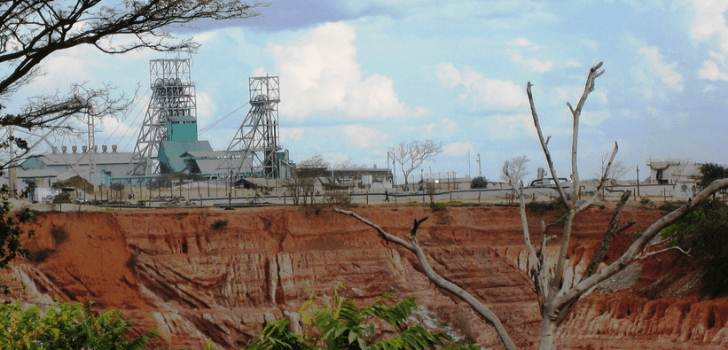The recent pathetic financial performance from commodity trading and mining company Glencore is now affecting the country of Zambia in southern Africa. Zambia is known for its copper mines, and the awful performance by Glencore is having a direct negative impact on the country.
Zambia’s currency, the kwacha, declined by as much as 16% yesterday, reaching an all-time low. Meanwhile, stocks for Glencore fell by 29%. Glencore has already announced its plans to cease operations in Zambia. The company owns more than 70% of Mopani Copper Mines, which is the second largest employer in Zambia after the Zambian government. Mopani Copper Mines produces 26% of the country’s metal.
With Glencore’s rapid decline, there has been immediate pressure on the kwacha and investors are quickly dumping the currency. While this occurs, workers at the Mopani Copper Mines face almost certain job cuts.
The economy of Zambia has been crushed because of a major decrease in copper prices. Copper represents 70% of Zambia’s income from exports, and the metal has lost 21% of its value this year. With copper prices down, the country’s revenue is down, and the result is extremely high levels of debt.
Zambia’s credit rating was recently cut by Moody’s Investors Service to B2, which is five notches under investment grade.
As for the kwacha, the currency has fallen by 48%. This gives it the dubious distinction of being the stock with the largest decline this year according to Bloomberg, which tracks more than 150 different currencies worldwide.
Nearly 20% of the workers at the Mopani Copper Mines are expected to lose their jobs. Glencore also plans to cut jobs at Katanga Mining Ltd. in the bordering country of the Democratic Republic of Congo. The company will also temporarily suspend operations at their mines, as it tries desperately to stay afloat.
While the demise of the kwacha and Glencore are troubling, investors are looking at the situation and realizing that the two perhaps shouldn’t have been so connected in the market.
Market analyst Gareth Brickman said, “With the benefit of hindsight, we can see how the kwacha’s fortunes have become tied closely to that of Glencore’s, the major mining company in the country.”
Additionally, Zambia is facing power shortage problems. Half of the country’s electricity comes from a hydropower plant at Lake Kariba. Because of a drought, the world’s largest man-made reservoir is less than one-third of the way full.
Estimates show that the economic growth in Zambia will fall to its slowest pace since 1998. The country expects a budget deficit of 8.4% of gross domestic product, which is nearly double of the government’s goal of a 4.6% deficit.
Despite all of these troubles, Zambia has not resorted to requesting loans from the International Monetary Fund. However, the country is quickly depleting its reserves and watching its levels of debt skyrocket. Unless Glencore can get its act together, which is unlikely, the country will most certainly continue to experience significant financial woes.
Stay Connected